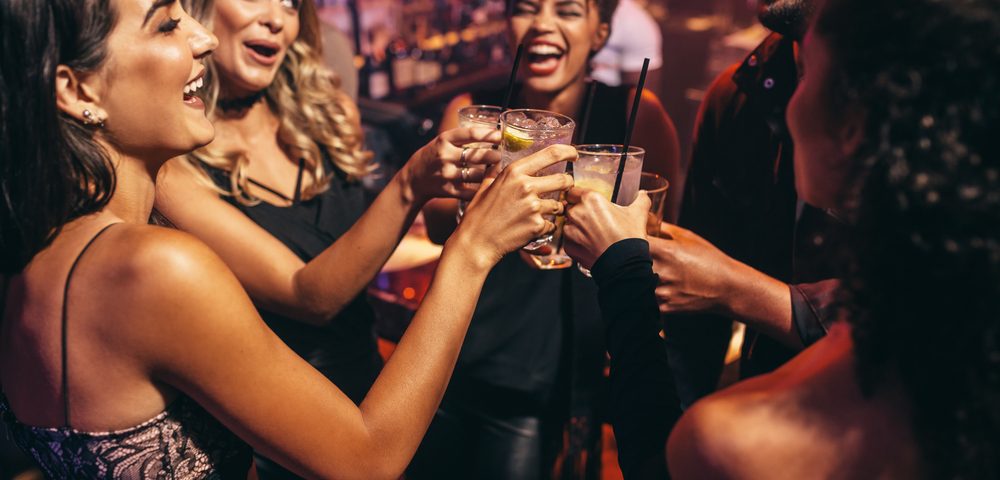The predilection for addiction is in our genetic makeup. We can deny all we want, but every human being has the hard wiring to become addicted to something . . . or multiple somethings. Even so, this isn’t to say that all people will become addicted to something or anything in their lifetime. Addiction can also occur for a variety of reasons, and various contributing factors come into play. Below is more on the addicted brain and how it compares to one that’s not.
What Part of the Brain Does Addiction Affect?
Drugs interfere with the way neurons send, receive, and process signals via neurotransmitters in the brain. Some drugs, such as marijuana and heroin, can activate neurons because their chemical structure is similar to that of a natural neurotransmitter in the brain. This allows the drugs to attach to and activate neurons.
Although these substances mimic the brain’s chemicals, they don’t activate neurons in the same way that neurotransmitters do. They also lead to abnormal signals sent through the body, causing various reactions or side effects. Other drugs, such as amphetamines or cocaine, can cause neurons to release abnormally large amounts of natural neurotransmitters – like dopamine – or prevent the normal recycling or reabsorption of these brain chemicals by interfering with transporters.
Drugs and addiction affect three major areas of the brain: the basal ganglia, the extended amygdala, and the prefrontal cortex.
- The basal ganglia play an important role in positive motivation or reward, including the pleasurable effects of activities like eating, socializing, and sex. This part of the brain is also involved in the formation of habits and routines. These functions form what’s called the brain’s “reward circuit.” Drugs over-stimulate this area of the brain, producing the euphoric high that many users chase. With repeated exposure to drugs, the brain’s reward circuit adapts to these substances, diminishing its sensitivity and making it difficult for the individual to experience pleasure with anything other than drugs.
- The extended amygdala plays a role in feelings like anxiety, irritability, and unease, which characterize withdrawal when the drug high fades. These feelings motivate the individual to use drugs again. This circuit becomes increasingly sensitive with increased drug use, and over time, a person with an addiction uses drugs to experience temporary relief from the discomfort of withdrawal symptoms rather than to get high.
- The prefrontal cortex contributes to the ability to think, plan, problem-solve, make decisions, and exert self-control over impulsive behavior. This is also the last region of the brain to mature, making teens most vulnerable to permanent damage when it comes to substance use. The shifting balance between this circuit and those of the basal ganglia and extended amygdala make a person with a drug or alcohol use disorder seek these substances compulsively with little to no impulse control.
Our Broward County drug rehab is led by a team of specialists who are educated and trained on the addicted brain and how best to treat it. Our facility offers drug and alcohol treatment that can offer you the guidance and care necessary for achieving sobriety.
Comparing Addict Brain vs. Normal Brain
This motivational reinforcement manifests as a craving and contributes to the overwhelming desire to seek and use. It’s actually thought that cravings for drugs and alcohol are more an attribute of desire than the actual feeling of pleasure. In other words, the anticipation of pleasure is greater than the actual sensation of pleasure, and craving is what motivates drug-taking behavior.
As a result, the addicted brain learns to receive pleasure from following events or cues that stimulate desire. The pleasure linked to anticipation becomes over-inflated, hijacking the reward system. Eventually, the normal pleasure pathways are rewired as the chemical disease progresses, feeding the addiction by inflating the reward and pleasure associated with the anticipation of the substance. This anticipation becomes almost as rewarding and pleasurable as using the substance itself.
The nucleus accumbens is an area of the brain associated with pleasure, and the ventral tegmental area is a midbrain structure that projects dopamine into the nucleus accumbens. The stimulation of the ventral tegmental area, followed by the stimulation of the nucleus accumbens, plays a major role in substance abuse and dependence, as essentially all addictive substances stimulate these areas.
Even at rest, an addicted brain is different from a normal brain. For instance, when heroin abusers and their matched controls were asked to remain quiet with their eyes closed, there was more spontaneous activity between the areas of reward, like the nucleus accumbens, ventral tegmental area, and orbitofrontal cortex. The brain of an addict also shows a reduced sensitivity to dopamine, which could result in a desire and motivation to increase dopamine levels via drugs or alcohol.
How Long to Rewire Your Brain From Addiction
Many see addiction as a moral failing on the part of the addict, and it’s in these cases that those struggling with some type of substance use disorder rely on self-medicating rather than reaching out and asking for help. The bottom line is that addiction is real. What’s more, addiction is a disease that can affect anyone.
If you or a loved one suffers from an addiction, our Pompano Beach drug rehab can help. We offer inpatient and outpatient treatment, substance-specific programs, and more to aid recovery.
For more information about our addiction and mental health treatment in Pompano, call Banyan Treatment Centers today at 888-280-4763, or you can provide us with your contact information, and we’ll reach out to you.
Sources:
- NIH - Addiction and the brain antireward system
- NIH - Neurocircuitry of addiction
- NIH - Profound decreases in dopamine release in striatum in detoxified alcoholics: possible orbitofrontal involvement
- NIH - Addiction-Related Alteration in Resting-state Brain Connectivity
- NIH - Variation in dopamine genes influences responsivity of the human reward system
Related Reading:









